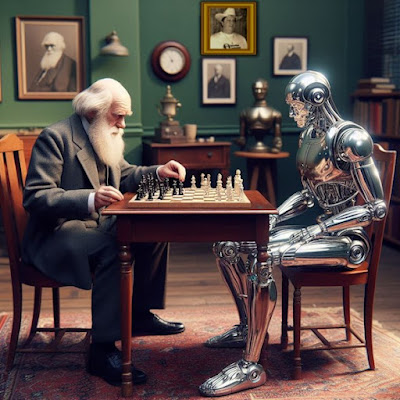Your Place in the AI Revolution

by Cowboy Bob Sorensen Give up and submit. They have won. Okay, I am being facetious because some folks indulge in too much science fiction where artificial intelligence and robots take over the world. The AI revolution is under way and developments occur so quickly that articles are often outdated as soon as they are published. You have been using AI for some time, but much of it is on a lower level. It is on websites and search engines. I used it in a recent post to remove the background of a zombie graphic so I could paste it into my photograph. Artificial intelligence is a tool that has many applications. Charles Darwin playing chess with a life-sized silver robot, made at Bing AI image creator *, then modified The computational power of AI is amazing, and some systems are self-taught in certain areas. Like any tool, it can be used for naughtiness as well as niceness. I have a coworker who disliked an AI image I showed him because he felt it takes away from the creativity of artis...












